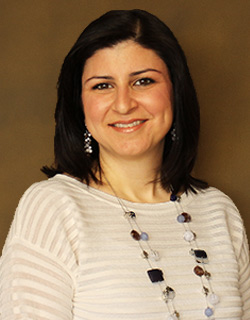Dr. Wehbeh Discusses Sleep Disorders
June 25, 2018Are you worried that you haven't been sleeping well? According to the Centers for Disease Control and Prevention, 1 in 3 adults in the United States doesn't get enough sleep. This can come from sleeping poorly. In this live interview, Dr. Raya Wehbeh, Director of the Sleep Center at GBMC, answers your questions about sleep disorders with April Watts from Magic 95.9.
The most common symptoms of sleep disorders are sleepiness during the day, morning headaches, the inability to fall asleep or to maintain sleep, and snoring. Frequently waking up to go to the bathroom can also be a sign of a sleep disorder. If you are concerned about your sleep, the first step is to talk to your primary care provider (PCP). He or she will talk to you about the medications you are taking and get a detailed history of your sleep habits and patterns. The issue may be resolved with some simple lifestyle changes such as reducing screen time before bed. However, if the issue is more complicated, your PCP can refer you to a sleep specialist.
The specialist will discuss your symptoms and perform a comprehensive physical exam. After this, it's likely that he or she will order a sleep study so that your symptoms can be observed. These involve spending the night at GBMC’s Sleep Center, where special equipment is used to track breathing patterns, eye movements, muscle activity, brain waves, and more.
One of the most prevalent sleep disorders is sleep apnea. Sleep apnea happens when a person's airway is blocked during sleep, causing them to partially or fully stop breathing for short periods of time. It is often accompanied by gasping and loud snoring, and it prevents the person from entering deep sleep.
People who are over the age of 40 and overweight are at the highest risk for developing apnea; however, it can affect people of any age or body type. When weight is not a factor, the anatomy of the throat and face is often the cause. According to Dr. Wehbeh, if the top of the mouth and the base of the tongue are close to each other, they can close when the mouth relaxes during sleep, causing an obstruction of the airway.
Sleep apnea can have very serious side effects including increased risk for high blood pressure, worsening diabetes, and potentially even heart attack or stroke. Fortunately, it is an easily treatable condition. A continuous positive airway pressure machine (CPAP) is one of the best ways to alleviate the symptoms of apnea. It works by pushing the air that you naturally breathe through the nose and into your airways. This allows you to continue breathing even if your throat becomes obstructed.
CPAP machines have a reputation for being loud and cumbersome, but with improved technology, this is no longer the case. Most masks no longer cover the entire face and the volume has been reduced to white noise.
Other sleep disorders include insomnia, narcolepsy, sleepwalking, and shifted sleep cycles. If you think you have a sleep disorder or may be at risk, you can take a free risk assessment here. "Don't ignore your sleep problems," said Dr. Wehbeh, "they significantly impact your quality of life and we can help."




